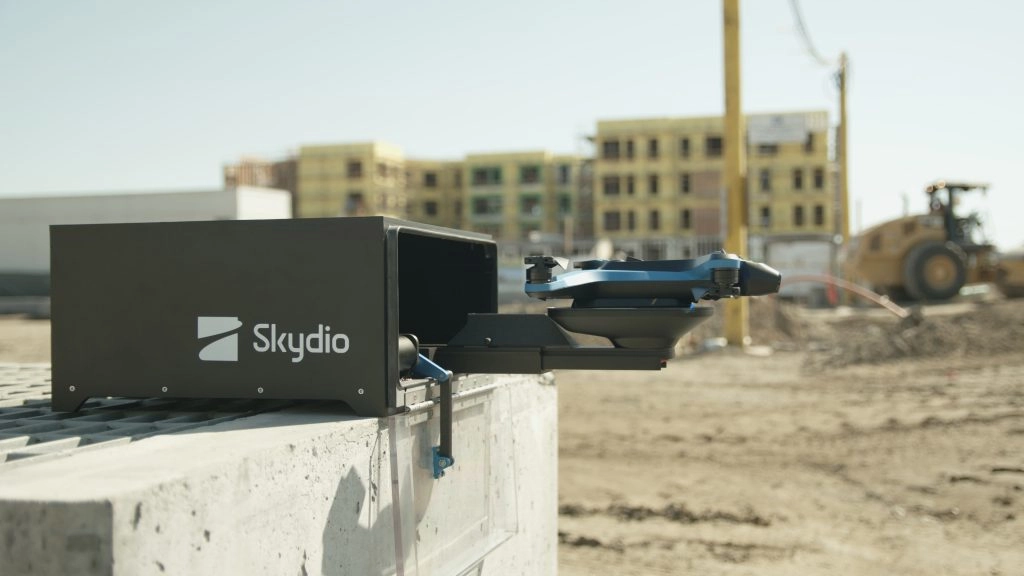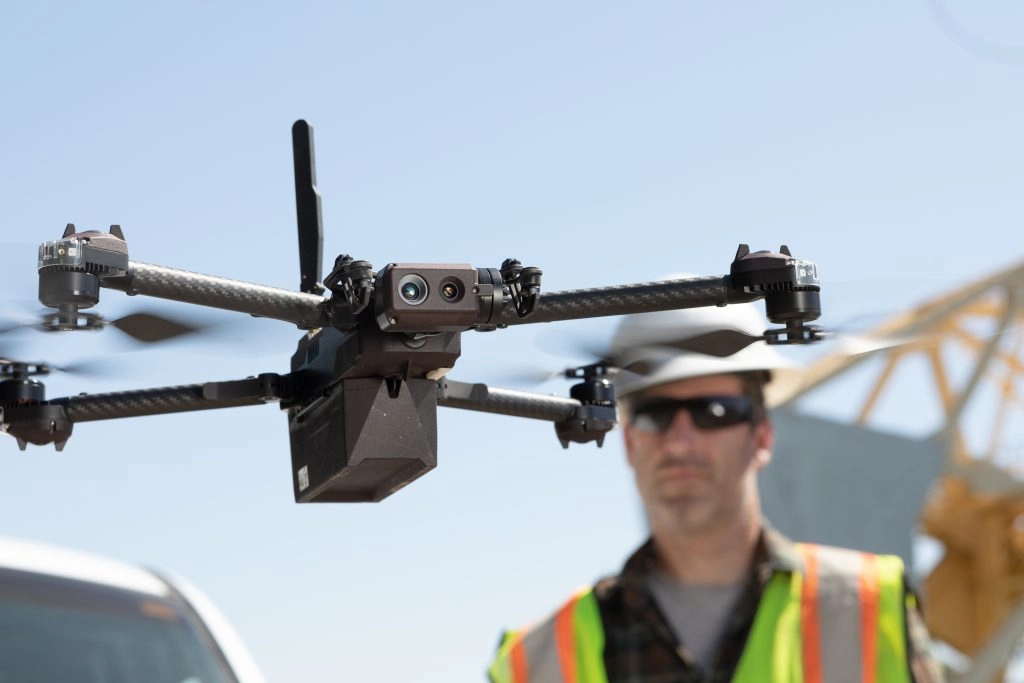Skydio Leading the Way in America’s Surge Toward the Top of the Drone Industry
Every week, Drones in America introduces listeners to guests who are leaders, influencers and experts from various areas to talk about America’s drone industry.
Topics discussed include the history of drones, new technology, policy and the rapidly-growing commercial market.
On this episode, host Grant Guillot sat down with leaders of the largest American drone manufacturer, Skydio. The CEO and Founder, Adam Bry, and the Head of Regulatory Affairs and Public Policy, Brendan Groves, joined the show to discuss the major announcements regarding the X2 line of enterprise drones and what that means for autonomous drones in the commercial and public safety segments.
Bry helped launch Google’s drone program in the early 2010s and, in 2012, was concerned the FAA could potentially kill the drone industry. It has been an up-and-down roller coaster ride since then, but Bry is very optimistic about the regulatory landscape in the UAV industry and is excited by the way the policymaker decisions are trending.
“Overall, I am optimistic, but you kind of have to be when you start a company,” Bry said of why he founded Skydio in 2014.
The Future of Autonomy
Bry likened the operation of drones to the early days of computing. When the computer industry first began, only specially trained experts and hackers were able to use the machines, and everything was done through the command prompt. But the first graphical user interface with “the first Mac and Windows totally changed the paradigm, [making it] a software-based experience accessible to way more people”.

The first phase of the drone industry were vehicles that had to be flown by a person with the knowledge and experience to carry out the mission. But, through the evolution of autonomous drones, it’s now much easier for companies to start utilizing drones, because the burden of flight is more heavily placed on the software powering the drone.
Evolution of the X2
The newly announced line of drones builds on the original R1 drone that legitimized the potential of autonomous flight for a more rugged vehicle, much longer flight times and a more portable frame.
The Skydio 2 drone was built for consumer use, but the enterprise sectors were also adopting the drone for its ease of use. The X2 is the natural step up to encourage commercial sectors to adopt Skydio over its competitors and more easily help scale drone operations through longer flight times while maintaining autonomous core values.

To help design the upgraded drones, Skydio relied on customer conversations in the government, inspection and security sectors to know exactly how they were using their products and what shortcomings they were having. The company saw a convergence of needs across these sections that led to the new capabilities of the X2 line.
America’s Comeback In the Drone Space
Skydio recently completed a $100 million round of fundraising that helps young company dispel the myth that American companies can’t succeed in the drone space.
“The opportunity for a new and different kind of product that is software-centric and meets the need of consumer, enterprise, and government customers is really, really clear,” Bry said.
In the last five years, drones have joined the list of IoT devices, and the ability for future drones to link together to create a network of drones will be a key component of scaling drone operations. But the connectivity element of their flight has brought the industry under heavy scrutiny regarding data security by companies that are headquartered outside of the United States.
Groves believes Skydio is well positioned for success because of its “cybersecurity and supply chain security, being in the U.S., and carefully sourcing the components” in their products.









